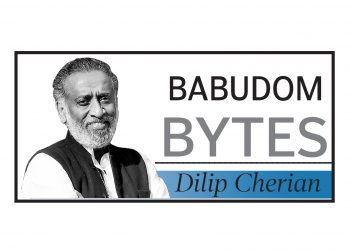Everybody loves a diplomat. Last month, after revamping its policy of inviting interns, the Ministry of External Affairs (MEA) opened its doors to interns. It was swamped by a deluge of applications from across the country. Under the new policy, MEA will take in about 60 interns every year in two batches, with each intern spending three months in the ministry. Sources say that the earlier 2016 policy was revised by Foreign Secretary Harsh Shringla recently. The idea is to bring young persons from different parts of the country to witness the making of the foreign policy up close.
While internships are pretty normal in the US government, which attracts droves of students fresh out of college to learn how the state functions, it is a novelty in India. Sources say that if the MEA ‘experiment’ is successful, the government may replicate the model in other ministries and departments to bring in fresh minds, hopefully with new ideas as well. Perhaps the MEA could start with itself. It is well known that India’s diplomatic corps needs much more than the sanctioned strength of 912 diplomats. How many of these interns will be motivated to want to become career diplomats remains to be seen. But the MEA initiative will be followed closely by interested parties.
AI-based postings for babus likely
It is often said about babus that once they join the civil service, usually in their 20s and early 30s, very few build on their skills. But that may be about to change. The Modi sarkar is reportedly in the midst of creating a database for officers that will maintain data about their background, interests and training history, among others. This will help list suitable candidates for different vacancies based on artificial intelligence (AI). Future postings may now rely on this AI-based system.
The system is apparently based on the Integrated Government Online Training (iGOT) which is used to provide focused and interest-based online training to officers. Sources say that the system being developed by the Department of Personnel and Training (DoPT) will now provide a strong incentive to babus to constantly upskill themselves and take up courses since their future postings will depend on their training history. This initiative, along with the lateral entry of specialists from outside the government, is what the Modi sarkar is betting on to improve policymaking and governance.
CAT and the whistleblower
Indian Forest Service officer Sanjiv Chaturvedi is known for his tireless fight against ‘the System’. He has been a thorn in the side of many a state government and institution (or a whistleblower depending on how you view it). His run-ins with the authorities in the Haryana government and the All-India Institute of Medical Sciences (AIIMS) kept him in the headlines.
In this particular instance, the 2002 batch Uttarakhand cadre officer has challenged the 360-degree appraisal system and lateral recruitment in the Nainital bench of the Central Administrative Tribunal (CAT). A judge has recused himself from hearing Chaturvedi’s plea after it was disclosed that the judge has appeared against Chaturvedi on different occasions. Curiously, earlier in January, CAT chairman L Narasimha Reddy too had recused himself from hearing the case. The judge’s recusal means that Chaturvedi’s plea will have to be taken up by another bench. Back in March 2019, too, the CAT chief had recused himself from hearing Chaturvedi’s three other petitions citing some “unfortunate developments” and other reasons. But going by the whistleblower’s track record, such delays are unlikely to put him off his stride. Watch this space for updates.
Share a babu experience! Follow dilipthecherian@twitter.com. Let’s multiply the effect.
